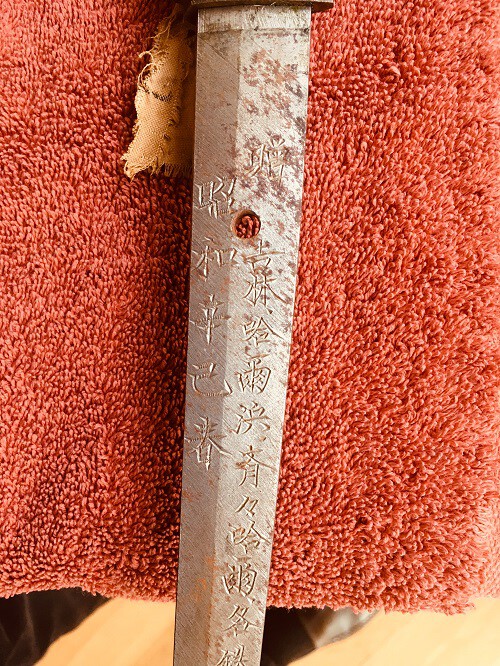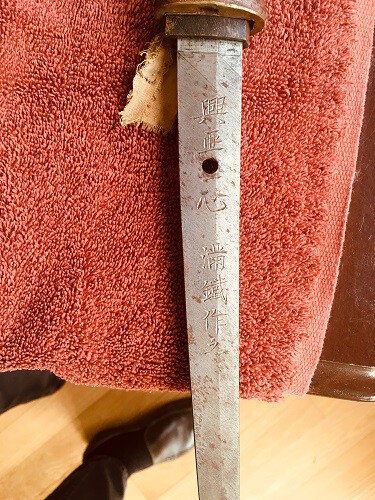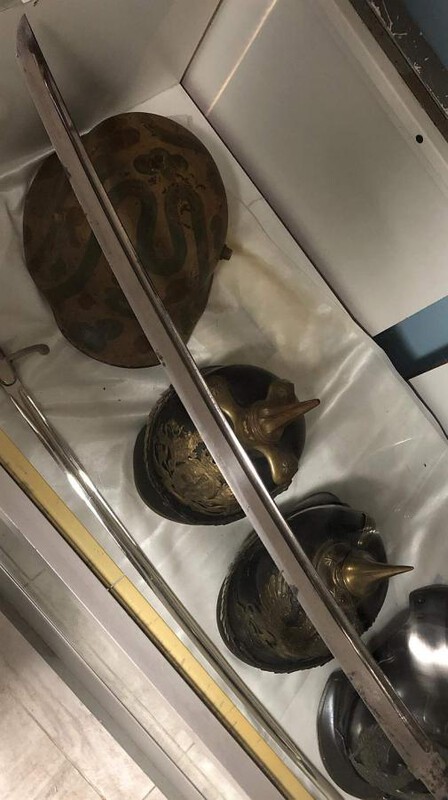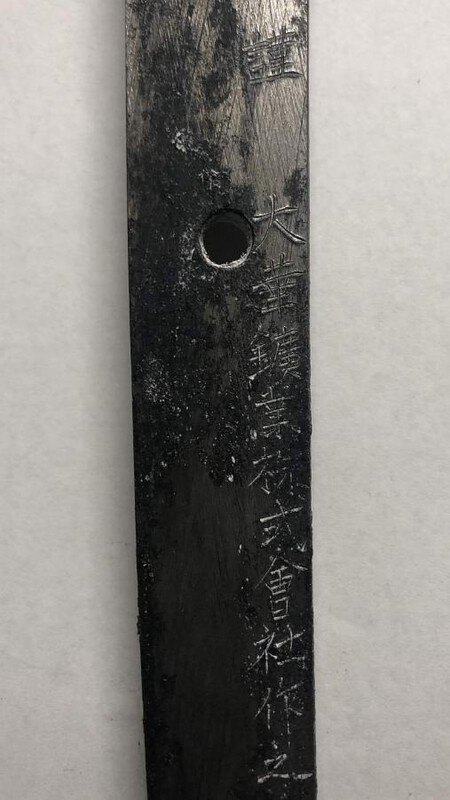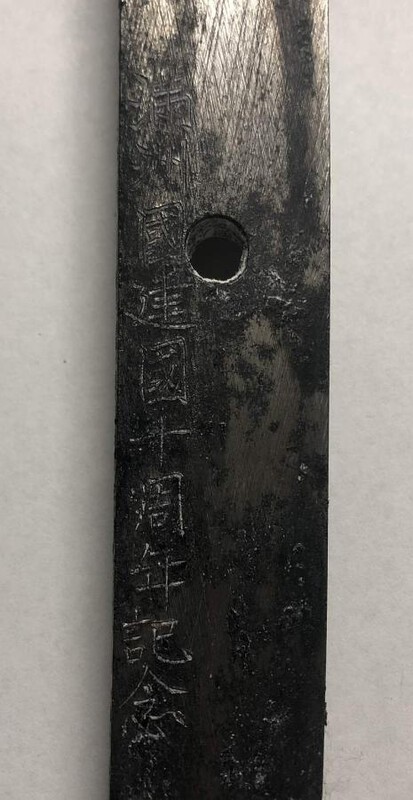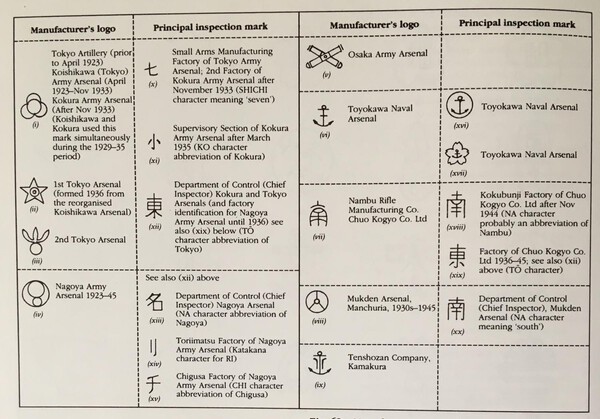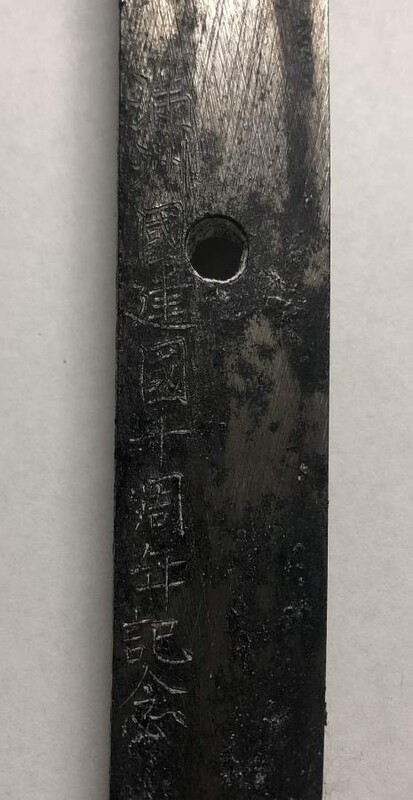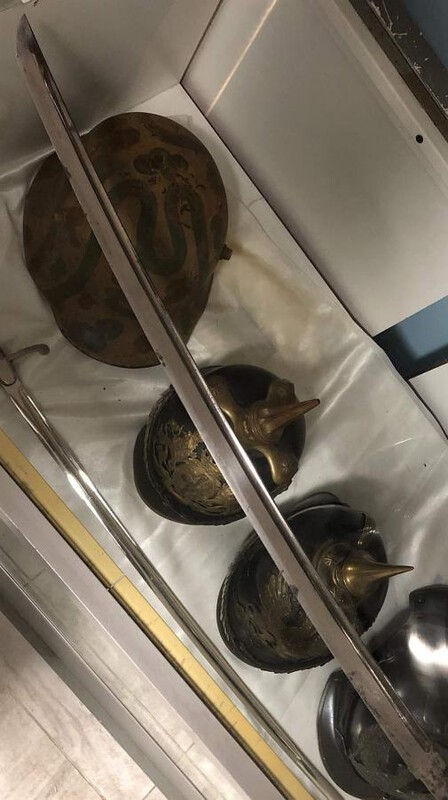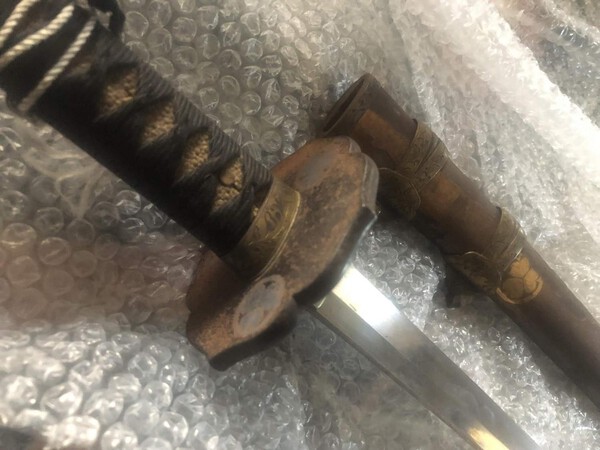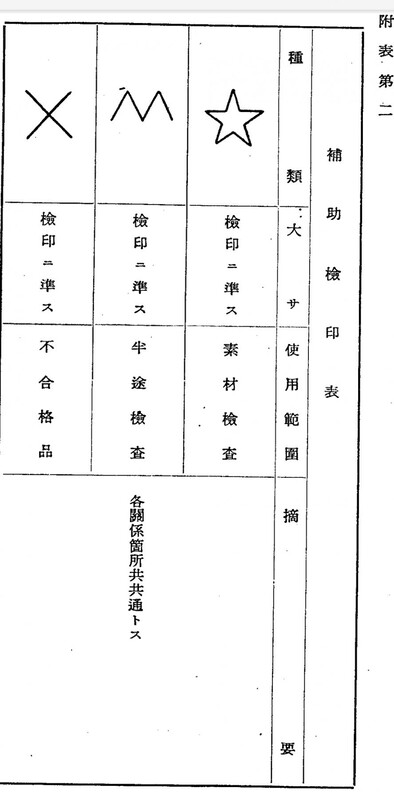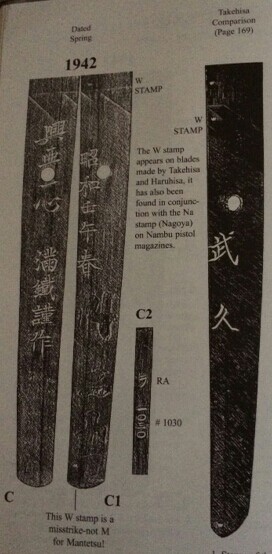-
Posts
13,000 -
Joined
-
Last visited
-
Days Won
155
Content Type
Profiles
Forums
Events
Store
Downloads
Gallery
Everything posted by Bruce Pennington
-
Marzio, Looks like Steve and Ernie are going to make me start saying stuff that I have no real knowledge of, so they can come in later and fix it!!! Ha! I have read that the army portioned out blocks of numbers to each of the arsnals, and have often stated that myself. After looking at the charts in Fuller's book, the blocks must have been smaller than I imagined. The numbers seem to be scattered between Kokura and Nagoya in almost random sets. His chart doesn't show the 200's and 300's, but I think they were more definably Nagoya and Incheon, though I have a vague memory of some really early 200's with Tokyo inspection marks. Out on a limb again - I have always believed the wooden handled 95s started sometime in '44. So if you have a 204,XXX number, it was probably made in 1944.
-
To Dave's comments, the kissaki is shaped really well,too. But I can't make out any hamon. Dave, what do you think of the kabutogane? I have almost no knowledge of civilian fittings, does this look like a Japanese civilian kabu? The rivet through the top makes me say, no. If I'm right about that, I would add the really course material the ito is made of, and the course leather work on the saya, and say - island forces sword. Steve, I agree the same' looks shark. It's just not sanded smooth like we see on Japanese gunto, which again, says non-Japanese work, or it could mean a job done in the field. But the nakago is typical for occupied lands workmanship. All in all, I'd say a really well done occupied forces sword.
-
Following. Waiting for Shamsy or Stegel. They know that kind of stuff.
-
I am, of course, refined and cultured enough to see the sword. As we all know, only the crude and uncultured will not be able to see it!
-
Thought it might be useful to track blades made for commemorative events and as presentation swords. I expect it will be a short thread (like the Railway Swords thread) simply because these things are farely rare. But at least what we know of them can be found in a single location. I'll start with 2 I know of: Inscription: 謹大華鑛株式会社作之 Respectfully made at the Daika Ore Co. LTD 満州国建国十同年記念 10th anniversary of the foundation of Manshuko As the Manchuoko govt was established in 1934, that should mean this was made in 1944. It came in navy fittings. Found here: http://www.wehrmacht-awards.com/forums/showthread.php?p=8552613#post8552613
-

Anyone familiar with this sword producer?
Bruce Pennington replied to Beater's topic in Military Swords of Japan
Ran this by Chris Bowen. He said: “My best guess is that since this was made as a commemorative, it was probably a special, one off, type of thing. They may have had a smith come in to make it, or may have provided some materials to a smith. Lots of this type of thing was going on during the war....” A one-time special for the commemoration makes sense. If we saw more from this company it would change things, but I bet we are into the answer. -

Anyone familiar with this sword producer?
Bruce Pennington replied to Beater's topic in Military Swords of Japan
More info from Nick Komiya at Warrelics: "They were a company based in 新京, the capital of Manchuria and even ran a private train service to Dalian. Late in the war there was also a plan for them to open a plant in Akita Prefecture, Japan. President of the company was a Japanese by the name of Ueshima, who after graduating from school in Tokyo, studied in Germany after which he settled in Manchuria." Still trying to find anything documenting their sword production. -
Thomas, That reference to an anchor stamp is a mystery to me too. The only ones I know of are referenced in Fuller & Gregory's book, and can be seen in his chart:
-

Anyone familiar with this sword producer?
Bruce Pennington replied to Beater's topic in Military Swords of Japan
-

Anyone familiar with this sword producer?
Bruce Pennington replied to Beater's topic in Military Swords of Japan
Guy, at Wehrmacht-Awards found this document that has something about the company: http://redirect.viglink.com/?format=go&jsonp=vglnk_157075997924715&key=371030782602e51f9316b570f87aa6a3&libId=k1lhwhus010009p9000MA1dc7j98y&loc=http%3A%2F%2Fwww.warrelics.eu%2Fforum%2Fshowpost.php&v=1&ref=http%3A%2F%2Fwww.warrelics.eu%2Fforum%2Fnewthread.php%3Fdo%3Dnewthread%26f%3D216&opt=true&out=https%3A%2F%2Frnavi.ndl.go.jp%2Fkensei%2Ftmp%2Findex_kashiwabarahyoutarou.pdf&title=Anyone%20heard%20of%20this%20Ore%20Company%3F&txt=https%3A%2F%2Frnavi.ndl.go.jp%2Fkensei%2Ftmp%2Fi...ahyoutarou.pdf -

Anyone familiar with this sword producer?
Bruce Pennington replied to Beater's topic in Military Swords of Japan
Maybe Thomas can find a reference to them in the war documents he has access to. Very interesting Kevin! -

The Mysterious "w" Stamp!
Bruce Pennington replied to Bruce Pennington's topic in Military Swords of Japan
John, I see what you're getting at. I can't think of any other stamp that is found more than once on a blade (except those that have extra stamping on the nakago mune). So why multiples of the W? Are you investigating the possibility that these are put on by the fitters? -
Indeed! Quite stabby, Bryce! Good show!
-
-

The Mysterious "w" Stamp!
Bruce Pennington replied to Bruce Pennington's topic in Military Swords of Japan
After scanning this whole thread, I don't see the chart I had just mentioned. Thomas found this in Rikugunshō 陸軍省 [War Ministry]. Rikugun Heiki Gyōsei Honbu 陸軍兵器行政本部 [Army Ordnance Administration Headquarters]. Ken’in oyobi hyōshiki kitei 檢印及標識規定 [Regulations for Inspection Marks and Signs]. After discussing it with Nick Komiya, Warrelics http://www.warrelics.eu/forum/Japanese-militaria/mysterious-w-stamp-636794-3/, it seems fairly certain the W stamp is a "midway/halfway" inspection mark. As you can see in the chart, though, it should be an M, as yamagata means "mountain shape", and is called a "chevron." Nick even has a shovel with the W stamp, and he believes after reading this chart, that this is what we are seeing. It would fit the unfinished Mantetsu blades sent to the Tokyo arsenal (and likely some sent to Mukden) as these could have had midway inspections before leaving the factory. I don't see why private smiths, like Takehisa, would have midway inspections on their work before finishing, though. Yet, since I have almost NO IDEA of the process these blades went through, I admit it was possible. In a similar vein, I admit there might have been a reason for stamping them upside-down too. Maybe we'll find out some day! -

The Mysterious "w" Stamp!
Bruce Pennington replied to Bruce Pennington's topic in Military Swords of Japan
John, It's out there. When you find them on Mantetsu, there are often 2 W's. The one's with 3 seem to be on named smiths. Here's a Takehisa with 3. No idea why. I'm still puzzled by the idea that these are "midway/halfway" inspection stamps. From the chart, these should be chevron-up, like mountain peaks "M", but predominantly they are chevron-down like "W". Ran this by Richard Fuller and he's not convinced it is the stamp referenced in the chart Thomas found. -
Dang Neil!!! I wish I had met you before I bought my kai (at $2,400)!!!
-
Yes, Geraint. The guy said it was a bring-back by his grandfather. But that doesn't mean it was carried in the war. It could have been, I suppose, but there were many privately owned swords that were confiscated at war's end. It doesn't appear to have been re-fitted at all.




